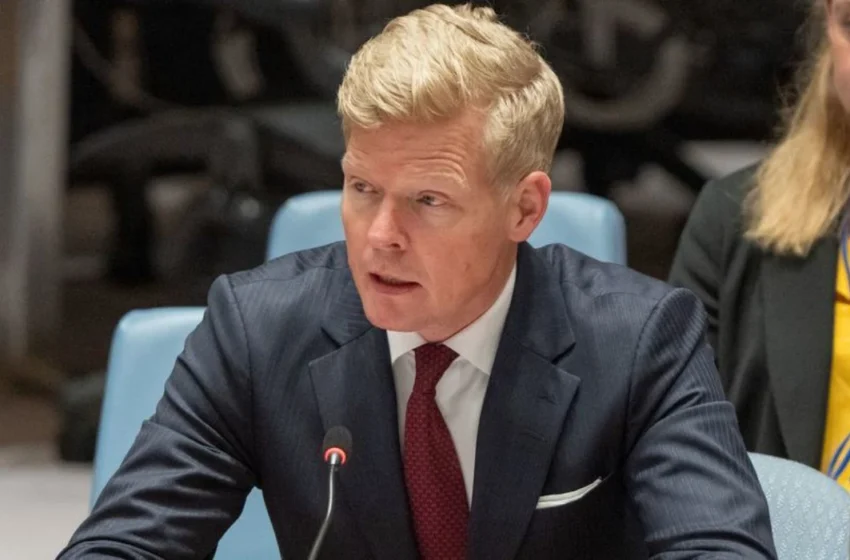
UN says Yemen truce offers hope for peace process
The UN Security Council heard on Wednesday that the truce between the United States and the Houthi rebels in Yemen offers a chance to revive the peace process in the Middle Eastern nation. Hans Grundberg, the UN Special Envoy for Yemen, informed the ambassadors and praised Oman for its efforts to reach the deal, which took effect on May 6.
He said that when the US resumed its lethal bombings on Houthi-controlled regions of Yemen, the end of hostilities marked a significant and essential de-escalation in the Red Sea.
He cited the Houthi attacks on Israel’s Ben Gurion Airport and Israel’s following strikes on Hudaydah Port, Sana’a Airport, and other sites as evidence that the nation is still embroiled in broader regional problems.
“But the announcement of May 6th offers a welcome opportunity that we must all build upon in order to refocus on resolving Yemen’s conflict and advancing a peace process that is owned by Yemenis,” he added. For nearly ten years, soldiers from the Yemeni government, supported by a coalition led by Saudi Arabia, and the Houthis, also known as Ansar Allah, have been fighting for control of the nation.
A new beginning is sought by the Yemeni people
Mr. Grundberg informed the Council, “Yemen faces enormous challenges, ranging from near economic collapse to the deep and significant levels of mistrust between the parties, with some reportedly still preparing for war.”
According to him, the UN will keep trying to get all parties together to find and adopt solutions that work for everyone.
He emphasized, “Yemenis want to move forward – the status quo is untenable.” “And although the frontlines might seem to be fairly stable right now, Yemen is not at peace.” In order to assist the Yemeni people in achieving their goal of creating a secure, wealthy, and safe nation, he emphasized the necessity of the international community’s ongoing involvement.
Yemenis have suffered through more than a decade of instability, uncertainty, and economic collapse, the Special Envoy said as he wrapped up his speech.
“I see you,” he said, addressing the populace directly. You’re heard. You are not forgotten, and I will continue to work toward Yemen’s peace and stability. “The United Nations will not waiver in its commitment to support you in finding a negotiated settlement to this conflict,” he said, urging the warring sides “to be courageous and choose dialogue.”
The Special Envoy expressed relief at the end of hostilities in Yemen, as did UN Emergency Relief Coordinator Tom Fletcher, who also informed the Council. But he emphasized that “Yemen is not out of the woods” as the humanitarian situation worsens, particularly affecting children.
How are Yemeni children suffering from severe malnutrition?
“2.3 million children, or half of Yemen’s population, suffer from malnutrition. 600,000 of them in a serious way. Only 69% of children under one-year-old are completely vaccinated, and 20% have not gotten any immunizations at all, making the nation one of the least immunization-adequate in the world.
Consequently, illnesses like measles and cholera are increasing. Yemen had one of the highest measles loads in the world in 2024, and it was responsible for more than one-third of all cholera cases and 18% of associated fatalities.
“Children are not alone in being disproportionately impacted,” Mr. Fletcher stated, adding that 1.4 million pregnant and lactating Yemeni women suffer from malnutrition, putting both mothers and infants at serious risk. According to him, 9.6 million women and girls in all are in dire need of life-saving humanitarian assistance.


